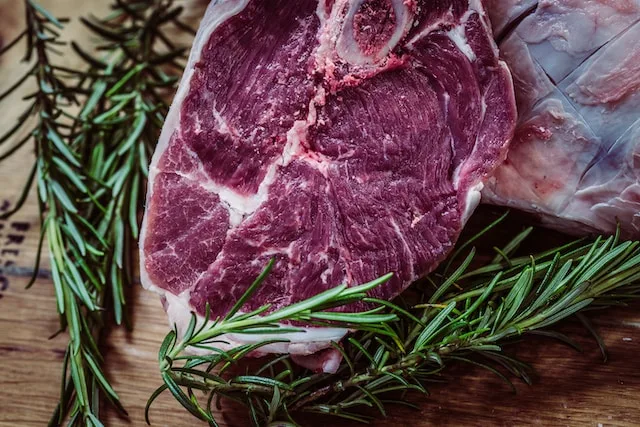How Many Calories are in a Pound of Muscle?
A pound of muscle does not have a specific calorie value because calories measure energy, not mass. However, muscle tissue is more metabolically active than fat tissue, so having more muscle can contribute to a higher daily calorie expenditure. Muscle burns approximately 6-10 calories per pound per day, depending on various individual factors.
| Type of Tissue | Calories Burned per Pound per Day |
|---|---|
| Muscle Tissue | Approximately 6-10 calories |
| Fat Tissue | Approximately 2-3 calories |
Please note that these estimates can vary based on individual factors and are meant to give a general idea of the differences in metabolic activity between muscle and fat tissue. It’s important to remember that the calorie content of a pound of muscle itself cannot be determined as calories measure energy, not mass.
Calories are a unit of energy used to measure the amount of energy provided by food when consumed. They are not directly associated with the weight or composition of specific tissues in the body, such as muscle.
However, it is worth noting that muscle tissue is generally more metabolically active than fat tissue, meaning that it requires more energy to maintain. This leads to a higher resting metabolic rate in individuals with more muscle mass. In other words, having more muscle can contribute to burning more calories throughout the day, even at rest.
The general consensus is that muscle tissue burns around 6-10 calories per pound per day, whereas fat tissue burns around 2-3 calories per pound per day. These estimates can vary based on individual factors such as age, sex, activity level, and overall body composition.
To clarify, the number of calories in a pound of muscle itself cannot be determined because calories are a measure of energy, not mass. However, having more muscle mass can contribute to a higher daily calorie expenditure.
FAQs
- How many calories does 1lb of muscle use? On average, 1lb of muscle burns around 6-10 calories per day.
- How many extra calories does 1 pound of muscle burn? Compared to fat tissue, 1 pound of muscle burns approximately 3-7 extra calories per day.
- How many calories are in 1kg of muscle? Muscle tissue, like any other tissue, does not have a calorie content. Calories measure energy, not mass.
- How many calories is 10 pounds of muscle? Similar to the previous answer, the calorie content of muscle cannot be determined because calories measure energy, not mass.
- Which muscle burns the most calories? Generally, larger muscle groups such as the legs, back, and chest tend to burn more calories due to their size and involvement in compound movements. However, the actual calorie burn can vary depending on the intensity of the activity performed.
- How long does it take to lose 1 lb of muscle? The rate at which you may lose muscle mass can vary depending on several factors, including diet, exercise routine, and overall health. However, it is generally recommended to focus on maintaining muscle mass while losing weight to prevent excessive muscle loss.
- Do you gain muscle before losing fat? It is possible to gain muscle and lose fat simultaneously, but the rate of progress can vary. Generally, when following a well-designed resistance training program and consuming adequate protein, it is possible to build muscle while losing fat.
- How long does it take to build 1 pound of muscle? Building muscle is a gradual process, and the rate at which you can gain muscle mass depends on several factors, such as genetics, training intensity, nutrition, and recovery. On average, it may take several weeks to a few months to gain 1 pound of muscle.
- Will I lose muscle if I burn too many calories? If you consistently burn more calories than you consume without providing adequate nutrition and stimulus for muscle maintenance, you may be at risk of losing muscle mass. Proper nutrition, resistance training, and sufficient protein intake are essential for preserving muscle while losing weight.
- Is it possible to eat 3500 calories a day? It is possible to consume 3500 calories a day, but it is important to note that individual calorie needs vary based on factors such as age, sex, activity level, and goals. Eating 3500 calories a day may be appropriate for individuals with high energy requirements or those aiming for weight gain or specific athletic goals.
- Is 7000 calories 1kg? No, 7000 calories do not directly equal 1kg.

GEG Calculators is a comprehensive online platform that offers a wide range of calculators to cater to various needs. With over 300 calculators covering finance, health, science, mathematics, and more, GEG Calculators provides users with accurate and convenient tools for everyday calculations. The website’s user-friendly interface ensures easy navigation and accessibility, making it suitable for people from all walks of life. Whether it’s financial planning, health assessments, or educational purposes, GEG Calculators has a calculator to suit every requirement. With its reliable and up-to-date calculations, GEG Calculators has become a go-to resource for individuals, professionals, and students seeking quick and precise results for their calculations.

